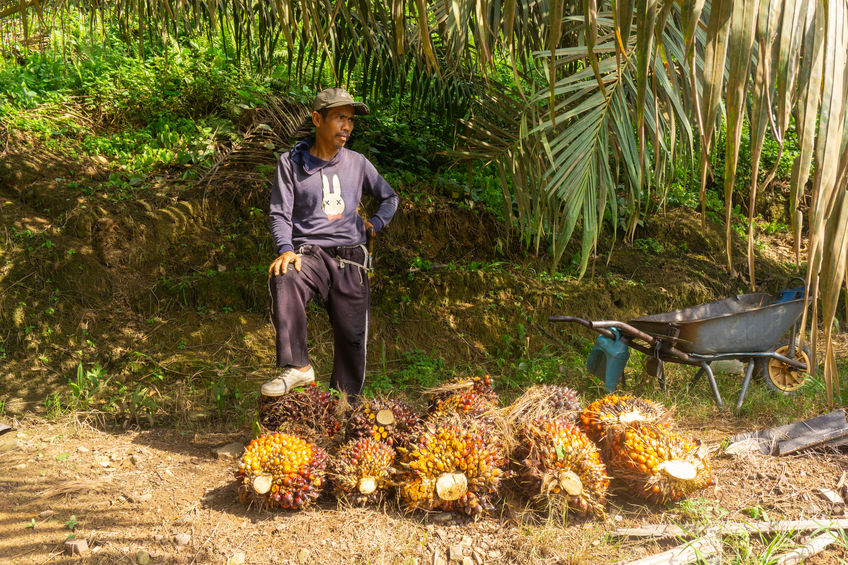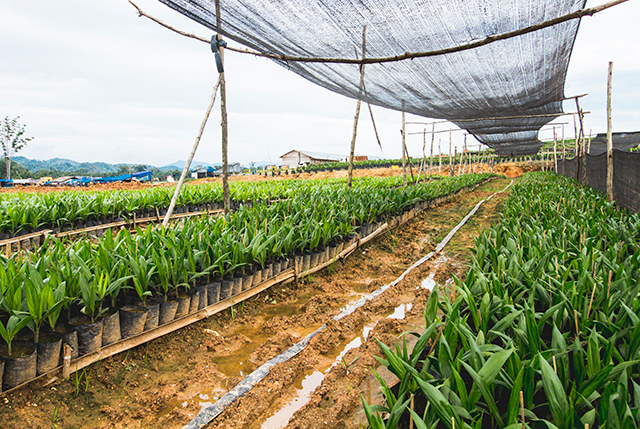Codex adopts code of practice to reduce exposure to contaminants in refined oils
The COP is intended to provide guidance to reduce the formation of 3-MCPDE and GE in refined oils and food products made with these oils by offering good management practices for application by national authorities, producers, manufacturers and other relevant bodies.
The forty-second Codex Alimentarius Commission held in Geneva, Switzerland 8-12 July 2019, adopted a Code of Practice (COP) for the reduction of 3-Monochloropropane-1,2- diol esters (3-MCPDE) and Glycidyl Esters (GE) in refined oils and food products made with refined oils.
The chemical 3-monochloropropane diol (3-MCPD) and related substances called 3-MCPD esters are food processing contaminants found in some processed foods and vegetable oils. 3-MCPD and its esters are formed unintentionally in these foods in particular during oil refining processes.
The Joint FAO/WHO Expert Committee on Food Additives (JECFA) determined that given the potential health concerns associated with 3-MCPDE and GE, it was important to reduce exposure particularly in infant formula for infants. The COP is intended to reduce exposure to 3-MCPDE and GE by lowering the levels of these contaminants in refined oils and products made from refined oils.
Defining effective methods for farmers, oil processors, and food producers
Work on the COP was led by the United States together with Malaysia and Indonesia. Eileen Abt, from the United States Food and Drug Administration said, “The adoption of the COP will provide farmers and processors with recommendations for methods to reduce 3-MCPDE and GE during agricultural production of vegetable oils, oil milling and refining of vegetable and fish oils, treatment of oils post refining, and selection and use of refined oils in products made with refined oils”. These mitigation measures will help reduce consumer exposures to 3-MCPDE and GE.
Progress through the Codex Committee on Contaminants in Food was generally smooth. “Some of the challenging issues we had to address before finalization of the COP related to differences in mitigation methods used for the various types of refined oils (vegetable and fish oils) within the COP”, said Abt.
It is important that Codex texts respond to food safety requirements as well as concerns regarding the impact of mitigation practices on trade in a particular industry. Methods in the COP need to effective for use by farmers, oil processors, and food producers.
The Code of Practice will ensure food safety and quality along the supply chain in Malaysia
Malaysia produced 19.5 million tonnes of palm oil in 2018 and the Malaysian palm oil industry supports the livelihood of 650 000 smallholders in the country. The development of Codex Standards and other texts such as the Code of Practice are of crucial importance in facilitating the global trade in fats and oils including palm oil.
A representative of the Food Safety and Quality Division in the Ministry of Health, Malaysia said, “The COP will be used as a guideline in the Malaysian oil palm industry to ensure food safety and quality along the supply chain”. Malaysia, as the second major producer of palm oil in the world, places high priority on food safety and quality as most of palm oil is being used as an ingredient for foods and cosmetic products.
“The Malaysian government is committed to evaluating several technologies to reduce the formation of 3-MCPDE and GE. The implementation of COP together with suitable technologies will ensure that palm oil products will comply with requirements of the importing countries”, they said.

The Malaysian palm oil industry supports the livelihood of 650 000 smallholders.
The establishment of the COP will provide all member countries with guidance to prevent and reduce the formation of 3-MCPDE and GE in refined oil thus providing safe and high quality products for human consumption. This approach will ensure that products are of the same standard and will be accepted by all importing countries through fair practices in trade without discrimination.
“At the national level, Malaysia has already taken all the necessary measures to ensure that the COP will be implemented. This covers all level of agricultural and manufacturing practices in producing safe and quality palm oils” said the representative.
Action plan in Indonesia will ensure small farmers not left behind
The COP will have major effect in producing countries like Indonesia when palm oil is an important commodity. “We need to prepare at the national level on how to implement the COP”, said Wahyu Purbowasito from the Secretariat of the Codex Contact Point in Indonesia. “The potential problem we have is related to the fact that 41% of palm oil in Indonesia is produced by small farmers. So, it is very important that we (the Government of Indonesia) develop a national action plan involving several Ministries”, he said. Indonesia will place a special focus on ensuring that small farmers will not be left behind.

41% of palm oil in Indonesia is produced by small farmers.
Codex Working online
Much of the valuable work on developing Codex texts between committee sessions takes place in electronic working groups (EWGs) where all Members and Observers can follow the work and contribute. At any point in the year over 50 such work groups can be active across the full range of Codex committees and the greatest challenge is encouraging participation by all members of the EWG to provide their input. “The EWG online platform proved to be a very useful tool for sharing information and for developing the COP in a transparent manner among members of the EWG”, said Eileen Abt.
Different approaches to mitigating risks.
With consumer attention often focused on where food comes from and if it is safe, the Codex Code of Practice to reduce contaminants from production through to final consumption of these refined oils highlights different approaches to mitigating risks across the whole food chain. It is a timely example of how Codex works to ensure food is safe, of the expected quality and that it can be traded fairly.
Read more
Download the Code of Practice (Appendix IV)
Categories
- (11)
- (19)
- (15)
- (3)
- Animal Feed (8)
- Antimicrobial Resistance (44)
- Antimicrobial Resistance (85)
- Codex Texts (18)
- Codex Trust Fund (1)
- Contaminants (13)
- Contaminants (10)
- COVID-19 (64)
- Elections (6)
- Food Safety (131)
- Labelling (13)
- Monitoring (9)
- Nutrition and Labelling (6)
- Nutrition and Labelling (7)
- Observers (26)
- Pesticides (9)
- Standards (82)
- World Food Safety Day (162)


